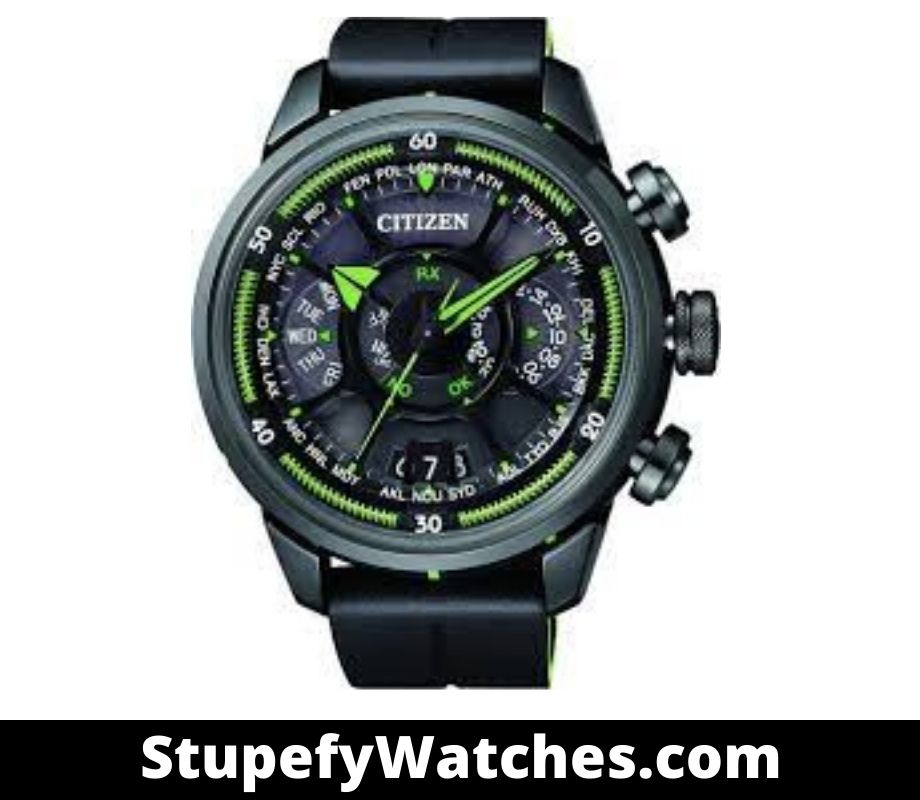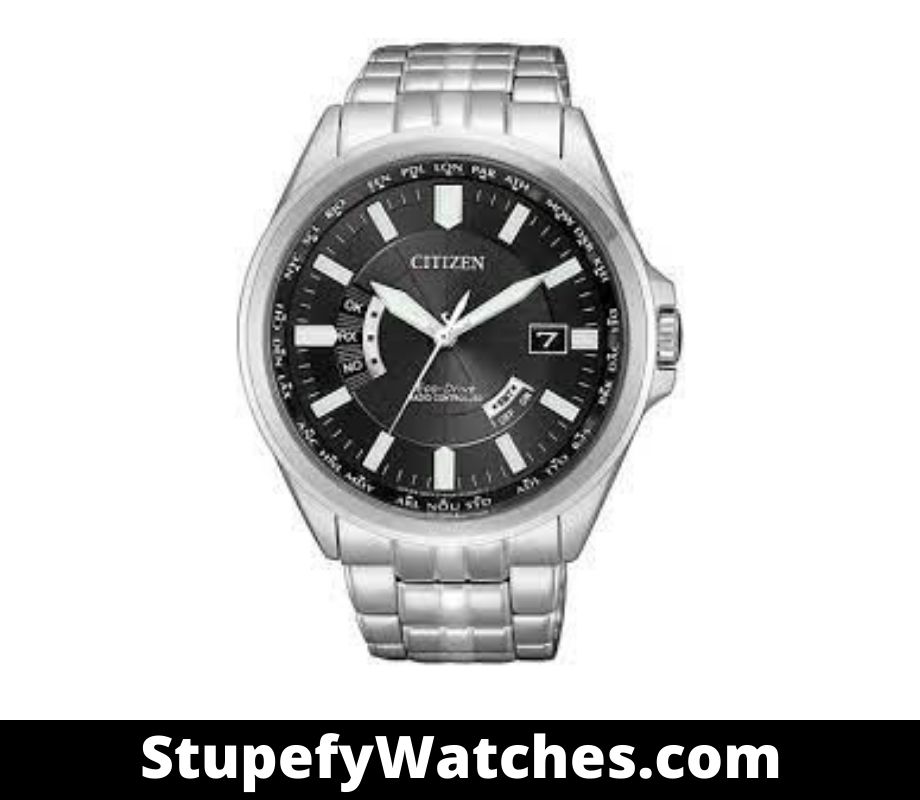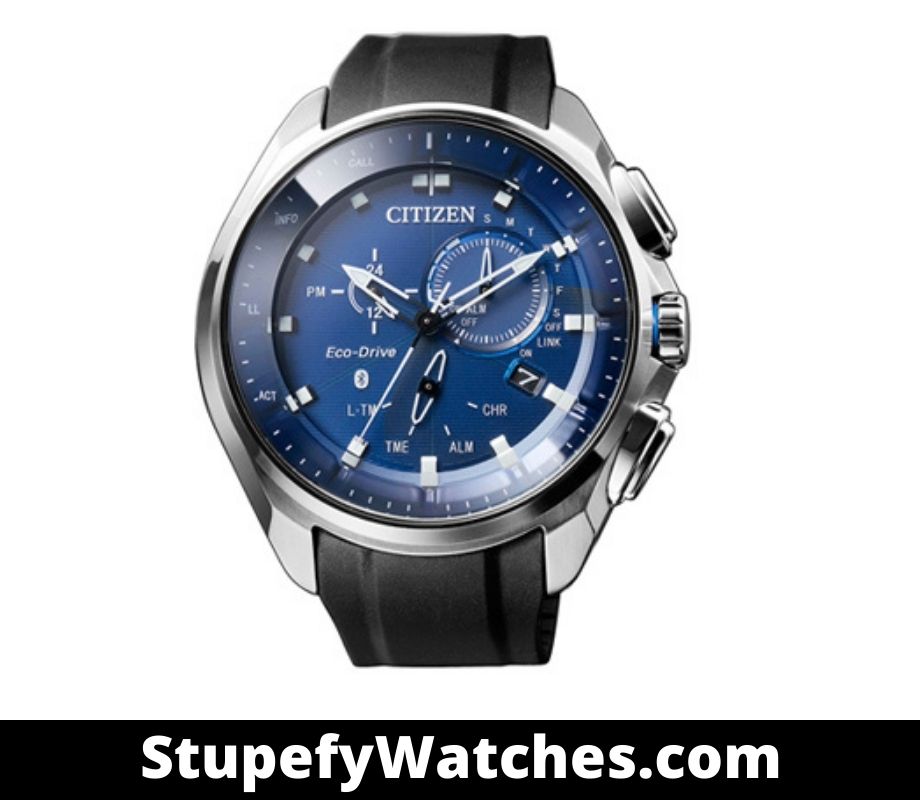When looking for precision when we check the time, Citizen offers us three very different technologies to always wear the watch with the correct time. Satellite Wave technology vs Radio controlled vs Bluetooth.
Is Satellite Wave GPS technology better than radio-controlled or Bluetooth? Well, it depends on a few things, and above all, it depends on the use you give the watch.
In any of the three cases, the precision of your watch is going to be much, much greater than what a mechanical watch can offer you.
Let’s see first what each technology consists of.
It may interest you:
- Citizen Super Titanium: What is it? Is it worth buying a watch with Super Titanium?
- Citizen Eco-Drive Watches: Use, Maintenance, and Troubleshooting
Page Contents
Citizen Satellite Wave
Satellites emit from space, 20,000 km from Earth, a signal that contains the exact day, date, and time. Citizen Satellite Wave receives the signal, anytime, anywhere, and your watch will always have the correct time.

Specifically, there are 24 satellites to that a Citizen Satellite Wave watch can be connected. Each satellite has an atomic clock that guarantees absolute precision in the measurement of time: the tolerance is 1 second every 10 million years.
CITIZEN Satellite Wave GPS has coverage in 38 of the world’s time zones. Even when passing through multiple time zones when traveling, the watch will display the correct local time.
Is the signal always available to update the clock time? Well, some environments are better than others.
GPS (Global Positioning System) reception is more likely to fail in a city if you are situated in the middle of large buildings. GPS reception works best in open spaces, in the middle of nature, and when the sky is clear.
Signal reception can be achieved in about 3 seconds. Signal reception takes a little longer than in the previous case.
More information: Citizen.
Citizen Radio Controlled
In this case, the time synchronization will occur between the clock and one of the radio antennas that are located in various countries around the world with atomic clocks. The tolerance returns to 1 second every 10 million years.

In the middle of the night, your radio-controlled Citizen watch automatically syncs itself to the correct time.
The antennas are located in Europe (Germany), the United States (Colorado), China (Henan), and Japan (Kyushu).
Is the signal always available to update the clock time? Well, it depends on how far you are from the antenna, and the time of day.
The synchronization is done at night and is better when there is cloudiness. It is better to put the watch in a window facing the direction of the antenna.
More information: Citizen.
Citizen Bluetooth
The third way we have to synchronize the time of a Citizen watch with precision is through the Bluetooth protocol.
The watch is going to connect to our smartphone, which is connected to the internet (and shows the precise time thanks to the fact that the time signal is automatically synchronized with atomic clocks).

The watch will connect to the mobile phone several times a day and synchronize its time.
Is the signal always available to update the clock time? Yes, as long as the watch is within the Bluetooth connectivity range, which is usually about 10 meters.
The mobile must be turned on and connected to the internet. You have to install the Eco-Drive Bluetooth app.
Through the link with your smartphone, the clock will automatically adjust to the time of the place where you are.
Within the app, you can choose any location on the world map. The app covers 316 cities around the world, including Coordinated Universal Time (UTC).
More information: Citizen.
Citizen Satellite Wave vs Radio Controlled vs Bluetooth
As you can see from its features, the technology that gives you the most freedom to always have the correct time is Satellite Wave: with hardly any effort, your watch will always give you the exact time.
You just have to keep in mind that these watches are usually a little more expensive and that in cities with very tall buildings, they usually work less well.
It is perfect for open spaces. Perfect if you travel a lot and don’t want to worry about changing the time every two times three. They are usually expensive.
Seiko offers similar technology in its Astron range and Casio G-Shock in its GPW-1000 models with GPS HYBRID WAVE CEPTOR technology.
- It may interest you with Satellite Wave: Citizen Pilot Super Titanium CB0230-81L: Opinion and review
If you don’t want to complicate your life and you have a smartphone, Bluetooth connectivity is the most convenient option. The clock will update every day and your time is always perfect.
The only drawback is that you have to always have your mobile on and close to you. You depend on your smartphone. Better than nothing happening to you in the middle of the jungle or on a mountain. They are perfect for every day and Their price is medium.
- You may be interested in our selection of the best watches from the Japanese brand: The best Citizen Eco-Drive watches for men.
Finally, we have radio-controlled technology. A classic since 1993 when Citizen launched the first Multiband watch. It works great…as long as you’re near one of the 4 antennas or have a signal booster in your house (sold by Citizen).
Casio also offers good options in this field in its G-Shock models with Multiband 6. They are perfect for everyday use if you live in a city. They are cheaper than Satellite Wave.
- You may be interested in the following radio-controlled model: 26 Best Affordable And Cheap Casio Watches for Men and Women
Will these technologies become obsolete? Satellite Wave and Radio Controlled will be with us for a long time. They work well and are reliable.
As for Bluetooth, the problem is that it is updated every few years, and at some point, our smartphone will not support old versions. Keep that in mind.
